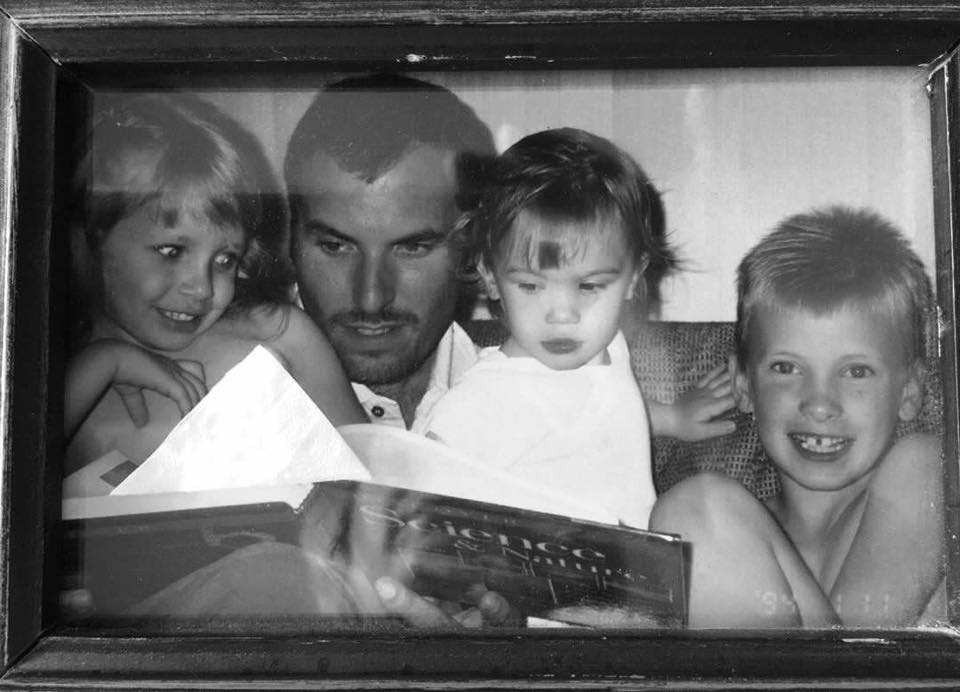
Photo by Capuski/iStock / Getty Images
by Greg Curtis: If you are in community with young adults and are in a multi-generational church like I am, you have caught a whiff of the phenomena I am about to talk about. Maybe that exposure came from…
A young leader in your church who “came out” as an atheists after years of ministry.
Finding out that someone attending your church for quite awhile loves being there but doesn’t really believe in God.
Having a son, daughter, nephew or niece share their lack of faith with you in a confidential conversation.
The prayer requests of close friends about their agnostic loved ones in your small group
A well known Christian leader confessing is newly admitted or embraced doubts about Christianity on social media.
However you got exposed to it, there is a generation out there that has revealed that for the first time in U.S. history, 23% of us now check the box “none” of the above” on all religious surveys. Those who do are now referred to as “Nones” and here’s the kicker: 78% of Nones grew up in churches like yours and mine.*
Because the reasons for people becoming Nones are various (See Pew Research Center study on the topic here), the old strategy we were taught (winning arguments and debates about God) do not work with most of them. For many it’s simply not about a reasonable search that turned up nothing for them regarding the reality of God.
So as a Sherpa Leader who is constantly leading people on the climb to connect with God and others, I have now identified 5 different types of atheists or Nones that I run into in our connection pathway and personal relationships. These types represent 5 different reasons someone would become a None, which has revealed to me 5 different ways to serve and love them as they come clean with their lack of faith.
5 different reasons people become “atheists” and how to best serve them:
1.Experiential Reasons.
These are easier for most of us to understand. These Nones have left faith because of a loss, hurt or trauma in their lives that made them question God and feel he let them down or was not there to begin with. They may have lost a child, a fiance or a much loved parent at a young age. They may have felt rejected by people they let their guard down with at church that made them see the church and God in a dark new color. They may have endured or become aware of sexual abuse that came from someone who taught them their faith at home or at church and struggle to feel God’s help, justice and compassion for them as they get sucked into the fire of what that means for them.
The trouble with churches is when you only have a hammer (sound arguments for faith), everything looks like a nail. Arguments to someone in this state are about the most non-sensical and least effective thing you can do.
Let me explain.

That’s Kendra on the left slightly older than the age she was in this story. I show it just to prove that she continued to grow into a healthy life affirming adult like her siblings in this photo despite the “trauma” in the ER….
When my daughter was 3 years old, she was a playful extrovert. Still is! But as a 3 year old, she caught a flu that was killing young children and the elderly across the country that winter. After 2 weeks of it, she lost a lot of weight and her mom discovered some blood in her stool. That was my queue to take her to the ER.
Because my party girl was cooped up for 2 weeks, her mom told her that daddy was going to take her out on a trip so Kendra got herself in a little dress, grabbed her little purse, and stood by the door waiting for date night with dad. Instead of steak and lobster, I took her to the hospital where they asked me to hold her down while that put an IV in her foot so they could address her dehydration.
I will never forget the look on her face as I held her down. It was nothing short of betrayal. I noted it, but staid on task and resisted the urge to explain to her what was happening and why. It would have been useless. A 3 year old cannot understand why this is “necessary” or even for some good result in the future. There was nothing I could do to make my little girl understand why I was holding her down while the doctors punctured her feet with needles. So I didn’t. I just listened to her cry, let her feel betrayed, and waiting for her to forgive me later.
I believe that is how God loves us when we go through trauma and hurt. Why on earth would we try then and get in the way of God’s work in their lives by trying to explain the unexplainable? It makes us look ridiculous, insensitive and its a waste of time.
What then should we do? Come alongside them with our presence. Just being there with them as they cry, scream or say the awful ways they feel betrayed by God is the best way to let them heal.

2. Intellectual Reasons
One time I had a staff member’s spouse come to me with their doubts about God and his lack of ever really experiencing him like others seem to. He began to read all kinds of books by popular atheists (the New Atheists) and his doubts and questions increased.
I recommended some books I thought would supplement his mindful pursuit of truth like The Question of God by Armand Nicholi (Harvard Psychology Professor), The Reason for God by Tim Keller (Pastor and Apologist), and The Language of God by Francis Collins (Geneticists on the Human Genome Project).
Because the questions are intellectual, what we should do is come alongside them with resources. Allow them to study on their own and come to you with their findings, not reacting to their conclusions along the way just kicking the tires and resourcing some more. I have never seen a person in this kind of honest pursuit not walk away with a more well grounded faith than they had before.
Those who seek, find. Just give them some equipment.
3. Developmental Reasons
It may surprise you to know that I was an atheist for a year in college. It was a strange, disorienting, and troubling experience for me. I literally went up to Napa Valley with a friend and came back not believing in God in a way I couldn’t shake. Nothing happened up there but a great time. But something happened inside that years later I would look back on as a developmental shedding of my former faith, even my parents faith, so I could embrace one that was uniquely my own.
During that year of unbelief, I actually made myself pray, serve and read the Bible. I was determined that if I was going to lose my faith, it wouldn’t be my fault! I even fasted asking God to show himself to me if he was real. Nothing happened. Just after Thanksgiving, the unbelief left me without me knowing it.

The reason became clear to me later.
At that time in my life something happened at close range that melted my old faith down, without me even realizing it. A woman name Marie had come to live with us during a painful upheaval in her life. Her son David had been burnt alive by her ex-husband. He barely survived. Burnt over 98% of his body, he came to live with us too as I watched them both come to faith in our home, even losing relationships with close family as a result.
This was new for me. I grew up in Southern California where going to church was fun. Being a Christian was a perk in life. It offered community, healthy friends, entertainment, a reason for most everything and a purpose in life. The advantages were palpable enough that even if Christianity wasn’t true, the positives additions to my life were worth it anyway.
When Marie and David came to live with us, for the first time I met people whose pursuit of Jesus cost them. It was hard to watch. And why shouldn’t it? Didn’t it cost the followers of Jesus life, limb and property for the first 300 years of our movement? These new circumstances confronted me with a question that I remember asking myself during that time: If I was born in a radical Muslim country and I heard the message of Jesus, would I convert?
The ironic thing is that I already had taught Bible studies through Josh MacDowells Evidence that Demands a Verdict and was familiar with apologetics and could defend the resurrection of Jesus quite well from that perspective. It didn’t help me in this season. Why? Because my atheism was developmental not intellectual. I didn’t need more facts, I needed someone to come alongside me with patience so I could get through this was some acceptance. My mom, the Christians who were members of a traveling band I was in, and a friend named Paul Alexander (now President of Hope International University) were instrumental in just being patient with me through my struggle with powerful doubts and lack of faith.
This is what we should do also with people who are not going to be atheists forever, but are genuinely in a state of unbelief. They don’t need apologetics, they need patience. Their faith is becoming their own.
4. Selfish Reasons
Despite the innocence of the previous types of Nones I have mentioned, there are those who don’t want to believe anymore simply because it doesn’t serve them to. Maybe believing keeps them from something they want to have or want to do. Rather than justify it, they know they can’t so they put God, their church and even their parents investment in them on the chopping block.
When that happens, someone needs to come alongside them with a challenge. What they are doing is not about God, but about them and the selfishness of it should be called out in a loving but truthfully clear way. They probably won’t receive it, but if it was lovingly delivered, they will remember the challenge at a later date when they have to pay the price for their choices and feel the need to come home. Sounds like a story I think Jesus told…
5. Educational Reasons
This may sound the same as Intellectual Reasons but here is the difference. Nones who don’t believe for intellectual reasons have studied something and the arguments are being pitted against each other in their minds. There are those however who do not believe because they have never been educated on the topic of faith in any way. These are not likely to be in the 78% of Nones who left their church. They have probably never been to church and grew up in non-believing families. Many times it is a new relationship in their lives that has brought the issue of God and following Jesus to the forefront of their considerations.
That’s Aaron’s story. I met Aaron at a small group I was asked to visit as a pastor to answer some tough questions in their study of Genesis. Many of the questions were Aaron’s. I identified as a None for sure. He grew up in a home that did not practice faith so he had really no background. He was invited to the group and became interested in Brandi who also attended. Their relationship only went so far as Brandi wanted to be with someone she could pursue Jesus with. Aaron became genuinely interested in the world of faith. He had many questions and he and I did some one on one’s to explore them. Questions like, “Where does the Bible come from?” and “How do we know it’s trustworthy?” and many more.
I learned that when someone is an atheist for lack of education, they just need us to come alongside them with answers. These are the most fun for me as people in this category in most cases actually want to believe. Watching the lightbulbs go off over their heads in one of the most rewarding things I can experience in ministry.
Aaron and Brandi are now married, have 2 children and serve as Table Hosts in our Next Steps program. There are some unbelievable components to their story that are so moving, we choose to share their story on video in our worship service and built the video into Step 02 of Next Steps. I could not resist sharing it with you.

For more insights on connecting people of all types, submit your info below and have it delivered to your inbox:
Name *
Name
First Name
Last Name
Email *
Church Name *
Church Website *
Thank you!
